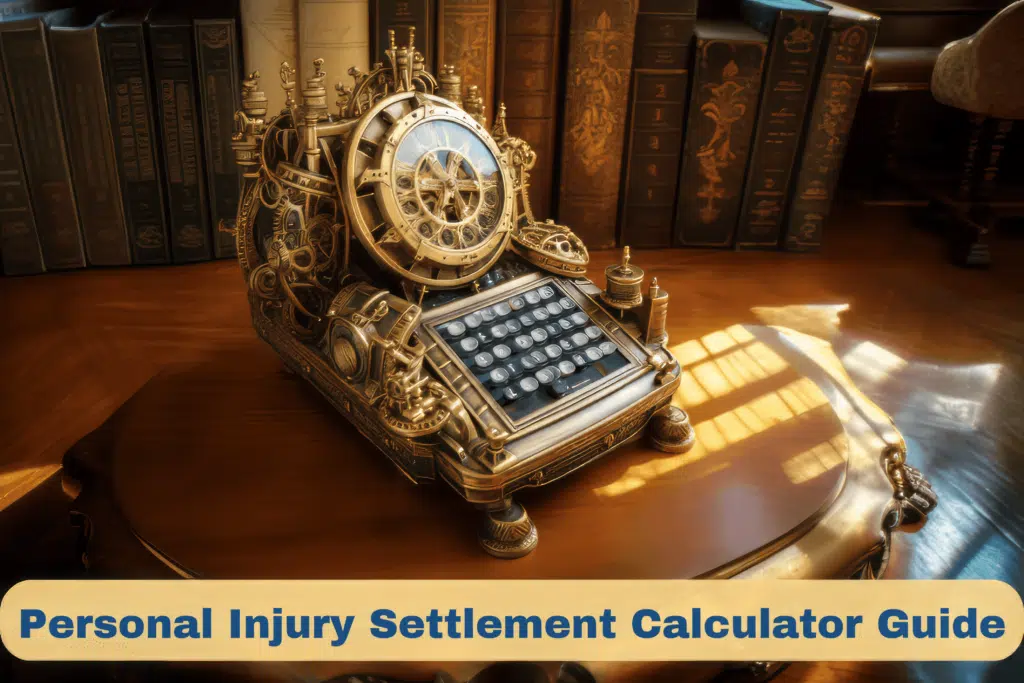
Text or Call 24 Hr Attorney Hotline (407) 803-2139
Maximizing the Value of Your Florida Injury Settlement: Key Factors Explored
Expert Review Note: Crafted and carefully reviewed for legal accuracy using detailed input and real-life examples by Orlando personal injury attorney Tina Willis, who has more than two decades of legal experience, this guide offers comprehensive insights into Florida settlement value factors & how accident attorneys calculate those.
If you suffered serious injuries or lost a loved one in a Florida accident caused by another’s negligence, you might be wondering what the full settlement value of your potential injury or accident claim could be.This comprehensive guide will examine the most critical factors to estimate the potential settlement value ranges for Florida moderate to serious injury and wrongful death claims.
Hiring an experienced Florida personal injury lawyer is critical, not only for accurately assessing your case’s full value, but more importantly rigorous and lengthy court procedures needed to collect the evidence that insurers require to write big checks. The best Orlando personal injury lawyers level the playing field against corporate defendants and insurers’ tactics. So use this guide to estimate potential settlement value ranges, then schedule a free consultation with our firm if you really want to win the full value. Let our proven expertise work to win the outcome you deserve.
Litigation over a high-value case can take a few years (moderate injury cases often settle sooner, but not always). Plus, there are complex court evidentiary and procedural rules, which we must follow, to gather all relevant evidence. This guide simply represents our “bird’s eye view” of the type of evidence we seek.
Injury Severity: First Question When Assessing Settlement Value
The type and extent of accident injuries are major factors affecting potential settlement amounts. We can only prove the severity of injuries with medical records, which are usually extensive in higher-value cases.
More severe and debilitating injuries warrant substantially higher valuations and payouts, while minor soft tissue injuries generally result in lower settlements. (Caveat: ALL cases, regardless of injury severity, are limited by the money available for us to recover, which is usually the total value of all insurance policies combined.)

Catastrophic Injury Examples & Settlement Value Range*
Permanent injuries like paralysis, amputation, severe burns, loss of eyesight, severe brain injuries, or catastrophic, permanent disabilities command top-tier settlement amounts, often in the millions of dollars BUT subject to the factors that could decrease value, incompletely discussed below. The lifelong impacts greatly expand the value.
Here are some other examples of the types of cases that warrant often 7 and, in extreme and rare cases, 8 figure recoveries IF there is available insurance coverage and the law otherwise permits recovery in the particular case:
- Spinal cord injuries resulting in paralysis, traumatic brain injuries causing permanent cognitive deficits, amputation of limbs, severe burn injuries over large portions of the body, wrongful death of family members, loss of vision or hearing, permanent disabilities requiring lifetime care, and brain damage causing loss of basic functions.
- Crush injuries resulting in multiple organ damage, multiple spinal disc herniations requiring multiple surgeries, loss of reproductive capabilities, severe orthopedic fractures necessitating multiple reconstructions, degloving injuries exposing muscle and bone.
- Permanent loss of use of limbs from medical errors, scarring and disfigurement impacting quality of life and employability, brain damage resulting in a permanent vegetative state, dysfunction or memory loss, debilitating strokes caused by medical negligence.
- Paralysis from the neck down requiring 24/7 care, severe traumatic brain injury impairing speech and movement, permanent injuries from defective products like vehicles or machinery, life-changing injuries to infants during childbirth, third-degree burns requiring skin grafts and reconstructive surgery.
* Assuming sufficient insurance coverage & no major negative case facts
Major (Moderate to Severe) Injury Examples & Settlement Value Range*
Major injuries requiring significant treatment like surgery, hospitalization, or long-term rehabilitation also increase potential payouts into the hundreds of thousands or higher. Spinal fusions, knee reconstructions, multiple fractures, IF surgery was performed, and sometimes even mild, and definitely moderate traumatic brain injuries fall into this category.
Here are some other examples of moderate to severe injuries, where values, assuming available insurance, and no decreasing factors, range from 100K to several hundred, to even over a million, depending on the severity and treatment:
- Herniated discs requiring spinal fusion surgery, concussions leading to migraines or cognitive deficits, knee ligament tears needing reconstructive surgery, rotator cuff tears resulting in permanent shoulder disability, future arthritis and joint degeneration from orthopedic injuries.
- PTSD and anxiety after experiencing trauma, facial fractures requiring surgery and pins, emotional distress from disfigurement and scarring, loss of fingers, toes, or partial amputation of limbs, ruptured organs necessitating extensive hospitalization.
Moderate injuries like these definitely might warrant six and sometimes even seven-figure settlements when clearly documented and requiring significant treatment. Experienced attorneys ensure victims receive maximum compensation for moderate impairments and disabilities by presenting convincing evidence and medical expert opinions.
*Assuming sufficient insurance coverage & no major negative case facts
Less Serious To Moderate Injury Examples & Settlement Value Ranges*
Less serious but still significant injuries like concussions, disc bulges requiring injections, moderate fractures, torn tendons, herniated discs (these range from moderate to more severe), or knee injuries needing physical therapy (rather than surgery, which would be more serious0 typically result in payouts in the tens or hundreds of thousands of dollars depending on the specifics.
For less substantial but still moderate injuries like these resulting in less treatment, experienced attorneys negotiate higher settlements by convincingly presenting evidence of how the impacts reduce victims’ quality of life and require ongoing care.
*Assuming sufficient insurance coverage & no major negative case facts.
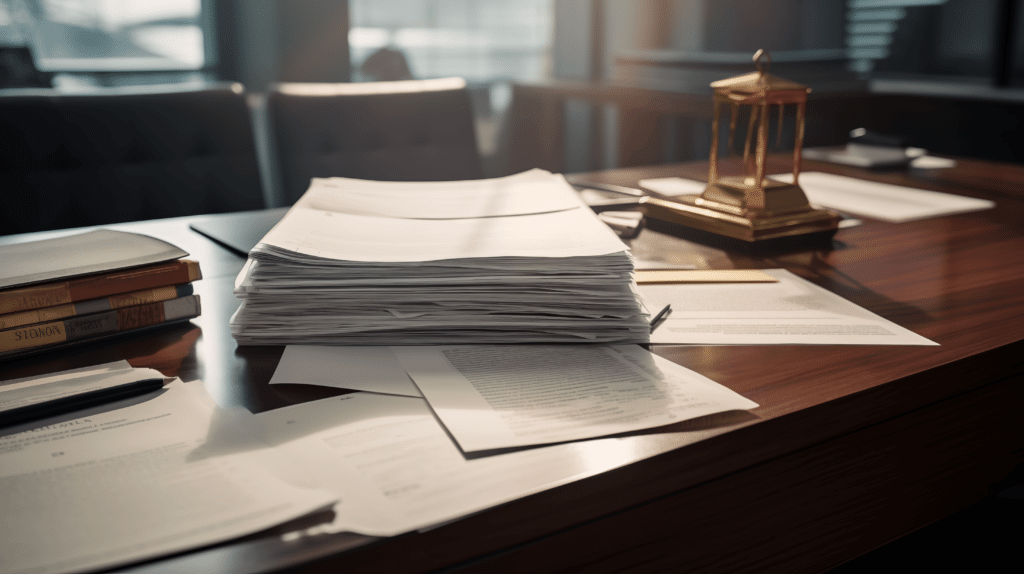
Available Insurance Coverage & Other Sources of Compensation
Understanding the limits and intricacies of insurance coverage is paramount in estimating the settlement value of a personal injury case. In Florida, the layers of insurance can either serve as a robust safety net or a complex web that requires skilled navigation.
- At-fault driver’s liability insurance: The BI liability limits of the at-fault driver’s auto insurance policy are often the primary source for recovery. Florida’s insurance policy limits vary widely, with personal policies typically offering $10,000 to $300,000. However, it’s crucial to recognize that Florida does not mandate drivers to carry BI coverage, which can significantly impact potential recovery in some cases.
- Your own underinsured motorist coverage: Your own UM/UIM policy is a crucial factor in settlement calculations. It acts as a financial cushion if the at-fault driver’s insurance is insufficient, potentially raising the settlement value.
- Commercial policies and additional coverage: Commercial vehicles often carry policies that exceed personal auto coverage limits. It’s essential to investigate the existence of umbrella or excess liability policies that could dramatically increase the available compensation.
- Assets and other insurance: Beyond auto policies, other assets or insurance from liable parties, such as employers or property owners, can provide additional avenues for compensation. A comprehensive search for these assets is part of due diligence in maximizing settlement values.
- Policy limits as caps: The combined maximum payout is often the sum of the negligent driver’s policy and your UIM policy. These figures set the practical cap on recovery, but they are not absolute; exceptions based on evidence and legal strategy can influence the final number.
- Going beyond policies: In rare cases where the listed policy limits would not cover the damages, skilled attorneys may identify additional insurance sources or assets to secure a higher settlement.
The exploration of all possible sources of compensation is a detailed and often complex task that requires an Orlando personal injury lawyer with the experience and resourcefulness to uncover hidden coverage and maximize the settlement offer.

Understanding Comparative Fault in Florida
In Florida, the concept of comparative fault plays a critical role in personal injury settlements. This doctrine acknowledges that multiple parties can share responsibility for an accident, and it adjusts the compensation accordingly.
- How Comparative Fault Works: If you bear any responsibility for the incident, your compensation may be reduced by your percentage of fault. For instance, if you’re deemed 30% responsible for an accident, your compensation will be reduced by 30%. Presenting a clear and compelling case to minimize your fault is essential.
- Evidence is Key: The collection of robust evidence is crucial to establishing the degree of fault. This can include traffic camera footage, eyewitness testimonies, accident reconstruction analyses, and more. Each piece of evidence serves to build a narrative that highlights the negligence of the other party.
- Negotiation and Litigation: The best Florida personal injury attorneys will use the gathered evidence to negotiate with insurance companies or, if necessary, present the case in court. The goal is to ensure that your degree of fault is accurately represented and to argue for the fairest reduction in compensation.
Navigating comparative negligence claims requires a strategic approach to evidence gathering and presentation. It’s a complex interplay between legal expertise and factual substantiation that ultimately determines the outcome of the settlement value.
Continuing with the next section, we’ll delve into the nuances of economic damages and their impact on settlement calculations.

Economic Damages: The Tangible Toll of an Accident
When quantifying the financial impact of an injury, economic damages offer a concrete measure of the losses sustained. These are calculable costs directly resulting from the injury, and in Florida, they play a pivotal role in the valuation of a personal injury claim.
- Medical Expenses: A cornerstone of economic damages, medical expenses encompass immediate treatment costs, surgeries, hospital stays, medications, and any long-term care needs. Detailed documentation from healthcare providers is indispensable for recovering these costs.
- Lost Wages and Future Earnings: For many, an injury results in time away from work. Lost wages, therefore, form a significant part of the claim. But beyond current lost income, if the injury impacts one’s ability to earn in the future, calculations must project the potential earnings over a lifetime, adjusted for inflation and career growth trajectories.
- Rehabilitation and Care Costs: The path to recovery can necessitate physical therapy, in-home care, medical equipment, and modifications to living spaces. These rehabilitation costs are recoverable as they are directly tied to the injury sustained.
In presenting economic damages, it’s not just about listing expenses; it’s about crafting a narrative that conveys the full scope of the financial burden borne by the victim. It is a narrative supported by bills, receipts, expert testimony, and often, a life-care planner’s analysis.
Moving forward, we’ll address the equally vital but less quantifiable aspect of personal injury claims—non-economic damages.

Non-Economic Damages: Quantifying the Intangible
Non-economic damages are the subjective, non-monetary consequences of an injury. In Florida, these damages serve to acknowledge the pain and suffering that don’t come with a specific price tag but are nonetheless real and impactful.
- Pain and Suffering: This encompasses the physical discomfort and emotional distress experienced since the injury. Determining a fair value for pain and suffering often involves a “multiplier” approach, where economic damages are multiplied by a number between 1.5 and 5, depending on the severity and permanency of the injury.
- Quality of Life: Injuries can rob individuals of the joys and usual activities of daily life. Compensation can be sought for this loss of enjoyment, reflecting the extent to which the injury has changed one’s lifestyle and ability to engage in hobbies or activities that were once taken for granted.
- Emotional Distress: The psychological impact following an injury—such as anxiety, depression, and PTSD—can be profound. While more challenging to quantify, these are real damages that, if severe enough, and documented, might increase compensation. Even if not well-documented, we highlight these personal impacts via available testimony (like from witnesses or you) in our presentations to insurance adjusters, mediators, and/or judges and juries.
For non-economic damages, the key lies in the ability to paint a vivid picture of the injury’s aftermath. Personal stories, witness statements, and detailed descriptions of daily challenges are crucial in personal injury litigation to ensure these damages are comprehensively evaluated and justly compensated.

The Influence of Pre-Existing Conditions on Settlement Valuations
Pre-existing conditions are often a double-edged sword in personal injury claims. While they can complicate the settlement process, they can also increase the compensation under the right circumstances.
- Differentiating New Injuries from Pre-existing Conditions: It is critical to establish how the accident has aggravated or exacerbated a pre-existing condition. This requires a thorough comparison of medical records pre and post-accident to demonstrate the accident’s impact on the claimant’s health.
- The Eggshell Plaintiff Rule: Florida law recognizes the principle that a defendant takes a victim as they find them. If a pre-existing condition worsens due to the accident, the at-fault party cannot use the victim’s frailty to limit their liability.
- Documenting Changes: It is vital to have medical professionals document any changes in the pre-existing condition after the accident. Detailed and timely medical evaluations are crucial for establishing the causal relationship between the incident and the aggravation of the condition.
A strategic approach to presenting pre-existing conditions can often turn what seems like a hindrance into a compelling argument for a higher settlement value, provided the argument is backed by solid medical evidence and expert testimony. That being said, we cannot recover compensation for the pre-existing injuries themselves. In other words, you can only recover for the value of the worsening, and that’s if there is evidence to prove the starting versus ending points. Our job is to help you find & present that evidence, if it exists (like in your medical records or via physician opinions or testimony).
Certainly, I’ll add a section that addresses the significance of the accident type and how it’s influenced by Florida laws and insurance policy limits.
Accident Type: Impact on Settlement Value of Personal Injury Claims
The nature of an accident significantly shapes the value of a personal injury claim. In Florida, specific laws and insurance nuances associated with different accident types can affect the settlement process and outcome.
- Auto Accidents: These are typically governed by the at-fault driver’s insurance policy limits. Florida law requires personal injury protection (PIP), but not bodily injury liability (BI), which can limit recovery options. However, serious injuries can tap into larger policies or (in rare cases) the personal assets of the at-fault party.
- Truck Accidents: Given the potential for more substantial damage, trucking companies often carry higher insurance policies. Nonetheless, the complexity of truck accidents can involve multiple liable parties, from the driver to the trucking company, and even third-party maintenance providers, which requires a keen legal strategy to navigate.
- Slip and Fall Accidents: Florida’s laws tend to favor businesses, making slip and fall claims challenging. To consider a case, evidence of negligence must be clear, and typically, an injury severe enough to require surgery might warrant a claim due to the high standard of proof required.
- Premises Liability: Similar to slip and fall, these cases hinge on the property owner’s duty of care and the reasonableness of their actions. Clear evidence of a hazardous condition and a direct link to the injury are critical components of a viable claim.
- Medical Malpractice: Florida’s stringent laws on medical malpractice make these claims particularly difficult. The threshold for proving malpractice is high, necessitating clear evidence of a breach in the standard of care. Only cases with severe injuries and indisputable medical error are likely to be considered given the state’s protective stance towards medical providers.
Each type of accident requires a deep understanding of the relevant Florida laws and a strategic approach to the unique challenges they present. Evaluating these cases in light of the specifics of state legislation and the available avenues for compensation is critical in determining the viability and potential value of a claim.
Your Actions or Inactions After The Accident: Impact on Case Value
The aftermath of an accident is a crucial period, often underestimated in its impact on the case value. Contrary to common belief, the value of a personal injury case is not solely determined at the time of the accident. Many factors, especially related to the client’s actions or inactions after the incident, play a significant role.
1. Medical Treatment and Records
- Importance of Following Doctor’s Recommendations: Failure to undergo or continue doctor-recommended treatment can significantly affect case value. Without medical records to substantiate claims, proving the case becomes challenging.
- Cost Concerns: Some clients resist treatment due to cost implications, as these will be deducted from the final settlement. However, this is counterproductive. Treatment, and the resultant records, are crucial for maximizing case value.
- Pain and Suffering Compensation: While medical costs are recovered, the value attributed to pain and suffering often increases with more significant and prolonged treatment.
2. Social Media Activity
- Potential for Misinterpretation: Posts about the accident or general life activities can be scrutinized by defense lawyers. For instance, a post about enjoying a party might be used to question the severity of injuries.
- General Guidance: It’s advised to limit social media activity post-accident. If necessary, stick to neutral topics that don’t imply anything about your physical or emotional state.
3. Honesty in Legal Proceedings
- Impact of Lying: Any dishonesty, whether in response to interrogatories or during depositions, can drastically reduce case value.
- Criminal History Relevance: Past criminal behavior, especially related to fraud, may be used to question trustworthiness and impact case valuation.
Decision Making and Well-being
These factors are not about manipulating the case’s outcome but about their well-being (like continuing doctor recommended treatment so that you get better to the maximum extent possible) and ensuring that your case reflects the true extent of your injuries (like not settling when injuries haven’t been treated or fully run their course).
Maximum Medical Improvement Often Necessary To Assess True Case Value
The journey to Maximum Medical Improvement (MMI) is critical in determining the true value of a case, particularly when injuries are not immediately apparent. MMI is when your treating providers say that you have reached the maximum improvement that they expect from treatment, and no significant further improvement is likely. During this period, clients’ actions and decisions can significantly influence the outcome of their case. Understanding these nuances is key to navigating the legal process post-accident effectively. Bottom line, we often need many clients to reach MMI before we can properly evaluate the case. And your actions before that happens are important.
Reaching MMI often takes time but that’s not always true. In cases involving catastrophic injuries, like paralysis, amputation, major traumatic brain injuries, or major burn injuries, although we still need to gather evidence, reaching MMI often doesn’t take as much time. Of course, MMI has no relevance in wrongful death cases. Finally, we sometimes don’t need our clients to reach MMI in cases where the insurance value is obviously far less than the injuries require.
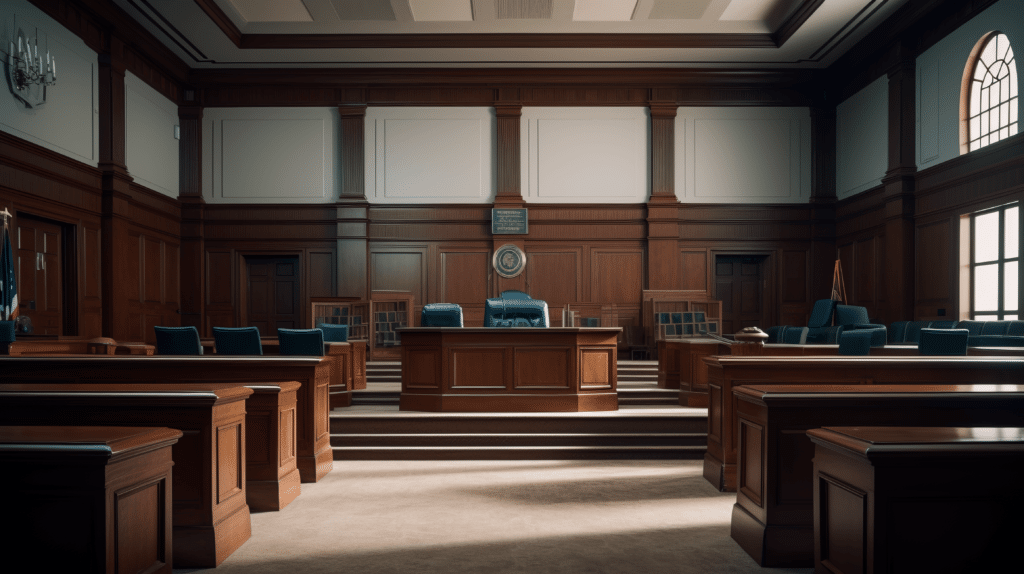
Strength of Evidence: Building a Robust Case
The bedrock of any personal injury claim is the evidence presented. In Florida, as in all jurisdictions, the strength and quality of evidence can make or break a case.
- Medical Documentation and Expert Testimony: Objective medical records and expert testimony are the linchpins of a personal injury claim. They provide undeniable proof of injury and recovery trajectory, which are essential in justifying the claim for damages. It is crucial to have all medical documentation in order—from the initial injury reports to the most recent medical evaluations.
- Accident Reconstruction and Liability: Establishing liability often requires reconstructing the accident to show the circumstances that led to the injury. This may involve hiring experts in accident reconstruction who can provide reports and possibly testify to support the claim.
- Witness Statements: Credible witness testimonies can significantly bolster a case, providing firsthand accounts that support the claimant’s version of events. Such statements can be powerful in establishing the facts of the case and the extent of the injuries suffered.
- Documentation: Other documentation such as photographs, employer records, or driver history records, may be important. We consider all possibilities to gather evidence to support your claim or contest defenses.
Collecting and presenting evidence is a meticulous process that demands attention to detail and an understanding of legal strategy. This evidence not only has to withstand scrutiny from opposing counsel but also from insurance adjusters looking to minimize their payout.
Legal Representation: An Essential Advantage in Settlement Negotiations
The complexities of personal injury law and the tenacity of insurance companies make it imperative to have skilled legal representation. A Florida personal injury attorney’s expertise can profoundly influence the settlement outcome.
- The Role of a Skilled Personal Injury Lawyer: From the outset, a seasoned Orlando accident & injury lawyer navigates the legal system, avoiding pitfalls that could devalue your claim. They understand how to package a claim, present the evidence compellingly, and articulate the nuances of your suffering and loss.
- Negotiation Expertise: Florida personal injury attorneys are adept negotiators who know the tactics insurance companies use to undervalue claims. We leverage our experience to counteract these tactics and push for a settlement that fully compensates for the victim’s losses.
- Maximizing Your Settlement: An attorney’s role extends beyond negotiations. They prepare the case as if it will go to trial, which often motivates insurers to offer a fair settlement to avoid the uncertainties of litigation.
The benefits of hiring a knowledgeable Orlando personal injury attorney cannot be overstated. Our guidance is crucial in managing the procedural intricacies of your claim and ensuring that your rights are protected throughout the settlement process.
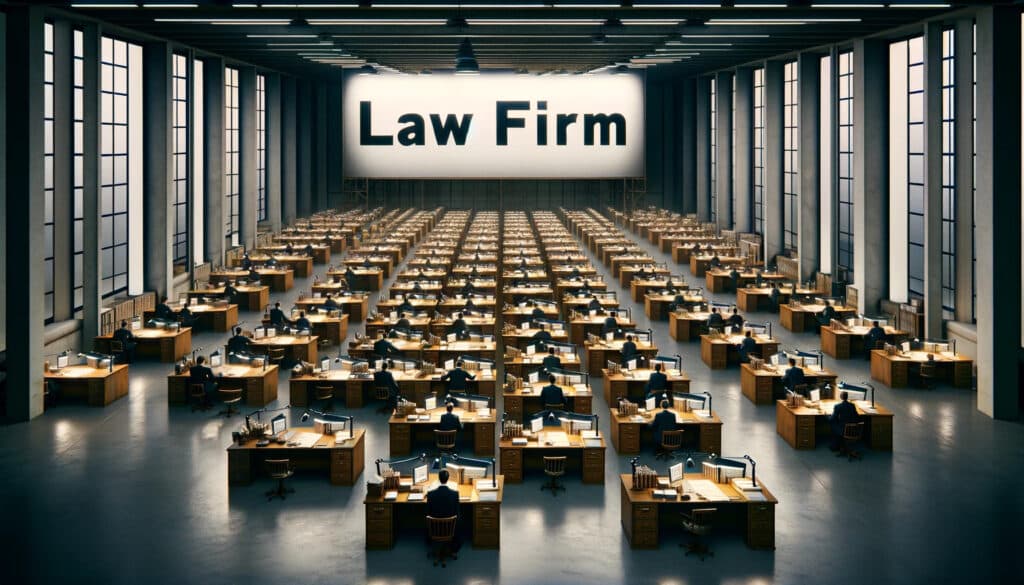
The Downsides of High-Volume “Settlement Mills”
When seeking legal representation for a personal injury claim, you may come across very large Florida personal injury law firms that process a high volume of cases, known in the legal community as “settlement mills.” These firms are characterized by aggressive advertising (think lots of billboards and television and radio ads) and mass production of claim resolutions, typically with minimal client interaction and a tendency to avoid taking cases to trial.
Settlement Mills: A Closer Look
A very thorough and enlightening study conducted by a Stanford researcher reveals several critical aspects that set personal injury settlement mills apart from traditional, client-focused law firms. Settlement mills often handle an overwhelming number of cases simultaneously, sometimes juggling 200 to 300 open files per day, per attorney, which is significantly higher than the norm for personal injury lawyers. This high-volume approach can lead to a lack of personalized attention and a one-size-fits-all mentality towards case handling.
Advertising and Client Acquisition
The aggressive advertising campaigns of settlement mills mean that many potential clients are drawn in by the allure of quick settlements and high visibility. However, this results in a business model that prioritizes quantity over quality, where the depth of legal expertise and personalized client care may fall by the wayside.
Efficiency Over Quality
Settlement mills have been described as embodying “entrepreneurial legal practices,” which prioritize efficiency over the quality of legal processes. In these settings, tasks such as client screening and settlement negotiations may be delegated to non-lawyers, with actual legal research and in-depth factual investigations often being neglected. This approach can significantly disadvantage clients, as it often leads to under-examined claims and settlements that do not adequately reflect the true value of the case.
The Stanford Study’s Perspective
The Stanford study provides an in-depth analysis of these practices, underscoring how they deviate from conventional law firm models and challenge the traditional notions of legal representation and compensation through tort law.
Other Smaller Orlando Personal Injury Law Firms
Of course, there are many other small law firms. However, we would still encourage caution because many smaller firms have lawyers that have also adopted high volume strategies. That simply is not our approach. We manage our case loads carefully. And if we are full, but we think another law might help you, then we will only recommend the few other law firms, with excellent lawyers, who share our approach, which is increasingly rare among Florida personal injury law firms. This truly is a buyer beware type of situation.

The Personal Touch in Law
When choosing a law firm to handle your Orlando personal injury & accident case, it’s crucial to consider whether the firm’s approach aligns with your needs for personalized attention and a dedicated legal strategy. While high-volume firms may suggest efficiency and expediency, the nuanced complexities of Florida personal injury law often require a more tailored and client-centric approach to ensure fair compensation and justice.
In light of these concerns, it is advisable to work with an Orlando personal injury & auto accident law firm that understands the value of your individual case and dedicates the appropriate time and legal expertise to achieve the best possible outcome. For a thorough discussion of how these factors might specifically apply to your case and the importance of personalized legal representation, please contact us for a free consultation. Every case is different, and we are committed to providing the detailed attention and expertise your unique situation warrants.
Conclusion
Navigating the aftermath of a personal injury in Florida is a journey fraught with legal complexities and critical decisions. This guide has outlined the primary factors influencing settlement values, from the severity of your injury and the coverage of insurance policies to the importance of strong evidence and expert legal representation. Each factor is a piece of a larger puzzle that, when correctly assembled, forms a clear picture of the potential value of your claim.
However, it’s essential to recognize that this guide serves as a general roadmap—the specific circumstances of your case can significantly alter the route you need to take. That’s why it’s crucial to consult with professionals who can provide personalized guidance.
If you’re feeling overwhelmed or uncertain about the value of your claim or the next steps to take, we are here to help. Please reach out to us for a free consultation at (407) 803-2139. Our team will review the details of your case, apply these factors, and provide you with a tailored analysis. Remember, every case is unique, and having a dedicated team to navigate your legal journey can make all the difference in achieving the justice and compensation you deserve.
Want To Learn More?
For an in-depth exploration of specific injury cases, detailed insurance coverage insights, and our expanded discussion on the implications of settlement mills in personal injury claims, continue to Part Two of our series.
Interested in getting a preliminary estimate of your case value?
Try our custom Tina Willis Law GPT (AI) Injury Settlement Calculator (scroll to the bottom of the post to link to the calculator). You will not be required to enter your contact info, and our law firm will not be able to read your entries.
For the most accurate and tailored assessment of your situation, we strongly recommend contacting us directly. We can help you navigate the complexities of your case and maximize your potential settlement.
Important Note to Readers: While we’ve poured considerable effort and experience into creating this content, and it has been meticulously reviewed for legal accuracy by Tina Willis, an experienced Orlando personal injury attorney, please remember that it’s not personalized legal advice. Every case has its own nuances and complexities. That was part of the point of creating the guide — so that you could begin to understand some of those complexities. For advice specific to your situation, we strongly encourage you to call us for your one-on-one consultation.
Text or Call 24 Hr Attorney Hotline (407) 803-2139
ShareNOV
2023
About the Author:
Tina Willis is a serious injury, accident & death lawyer, based in Orlando, Florida, although she accepts cases throughout the states of Florida and Georgia. Ms. Willis has won many prestigious industry awards, best personal injury & car accident lawyer awards, and recovered multi-millions for her clients. She was formerly a law professor, and graduated second in her law school class back in 1997. She formerly worked for some of the largest defense firms in the country, often on multi-million dollar cases. She used to represent large corporations & insurance companies, so she knows their playbook. We are very focused on the highest quality client service, and maximizing the value of every case we handle. We vigorously prosecute serious injury and death cases caused by auto accidents, semi-truck accidents, slip and fall accidents, products & premises liability cases, as well as medical malpractice.